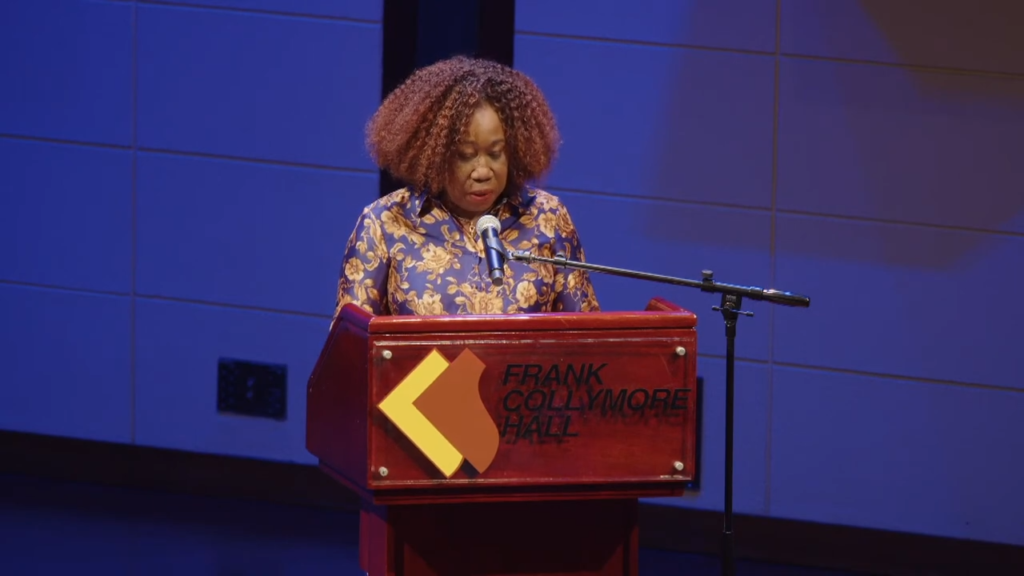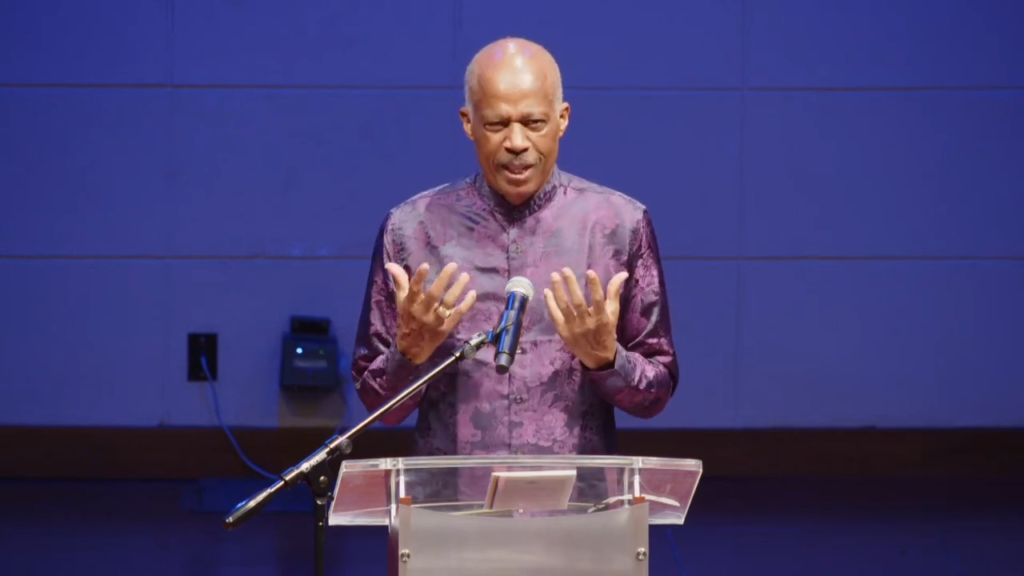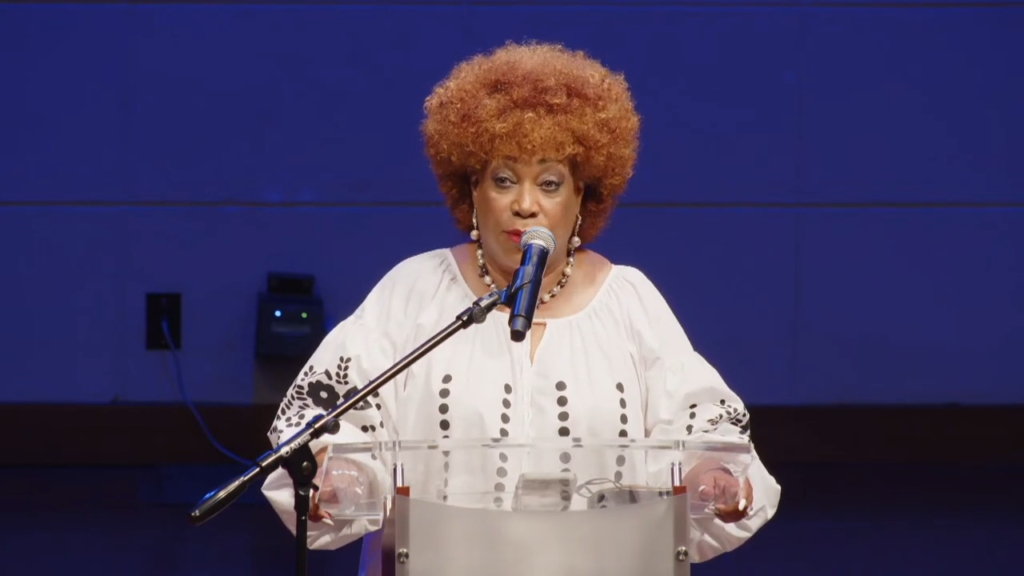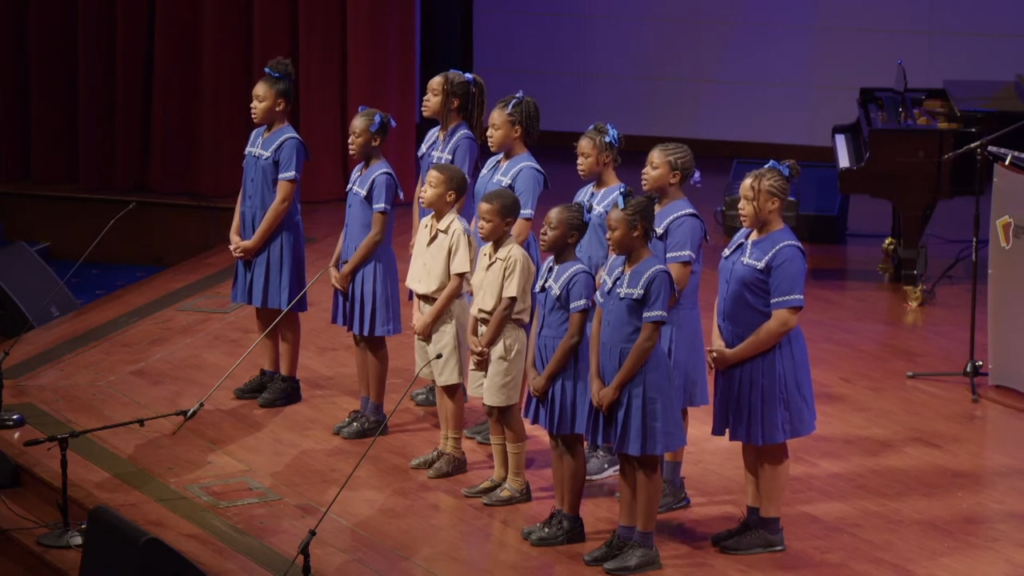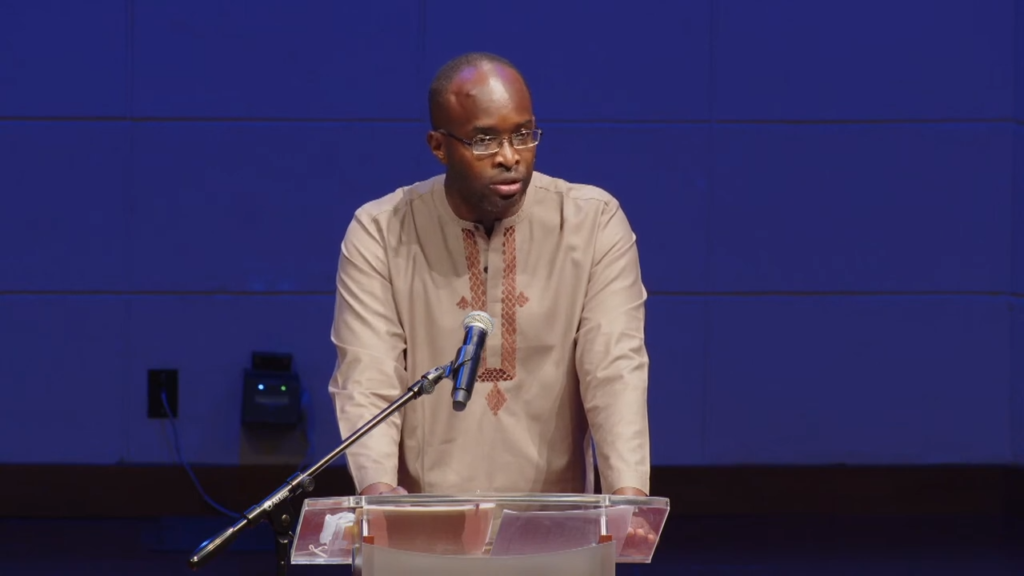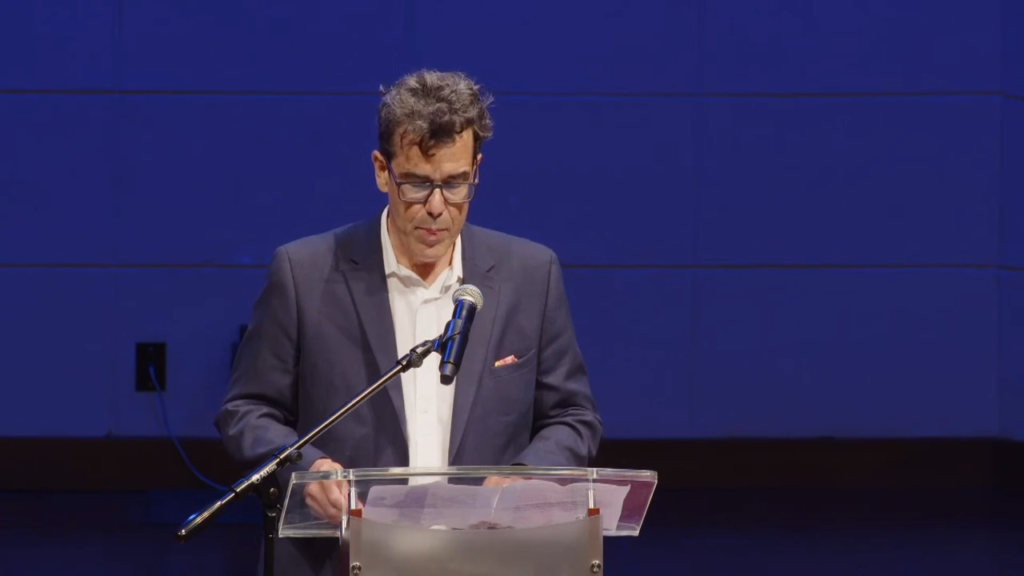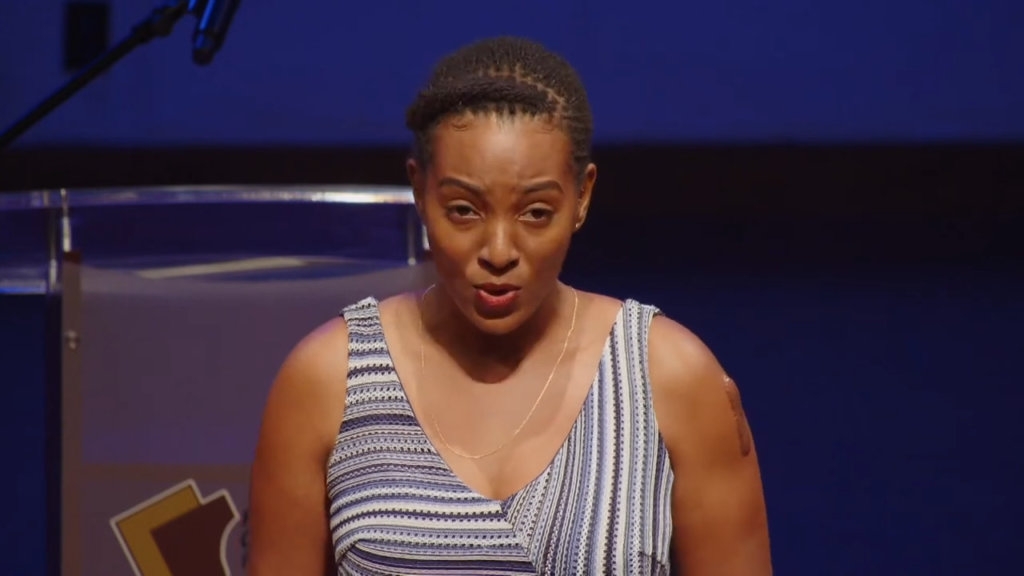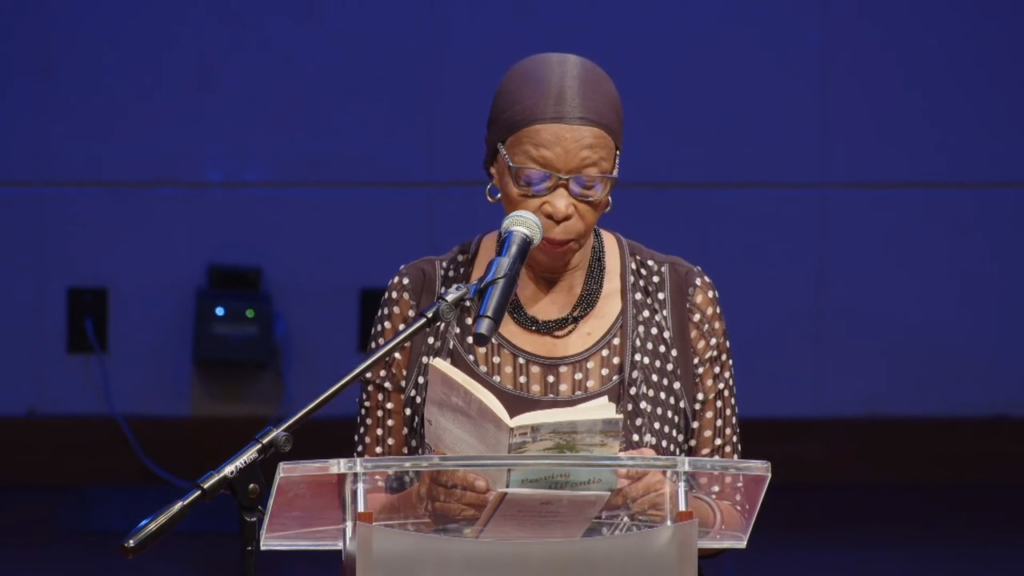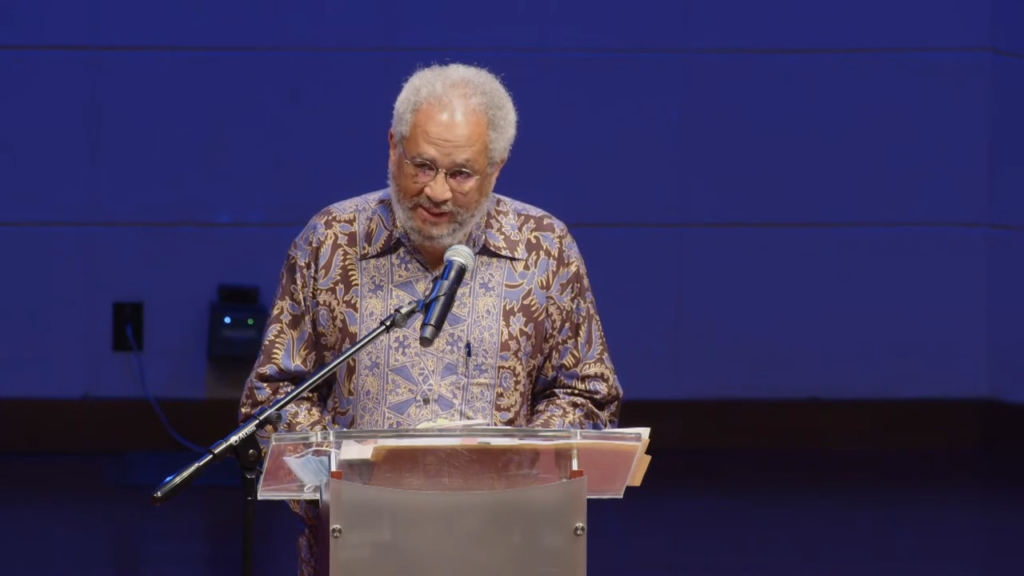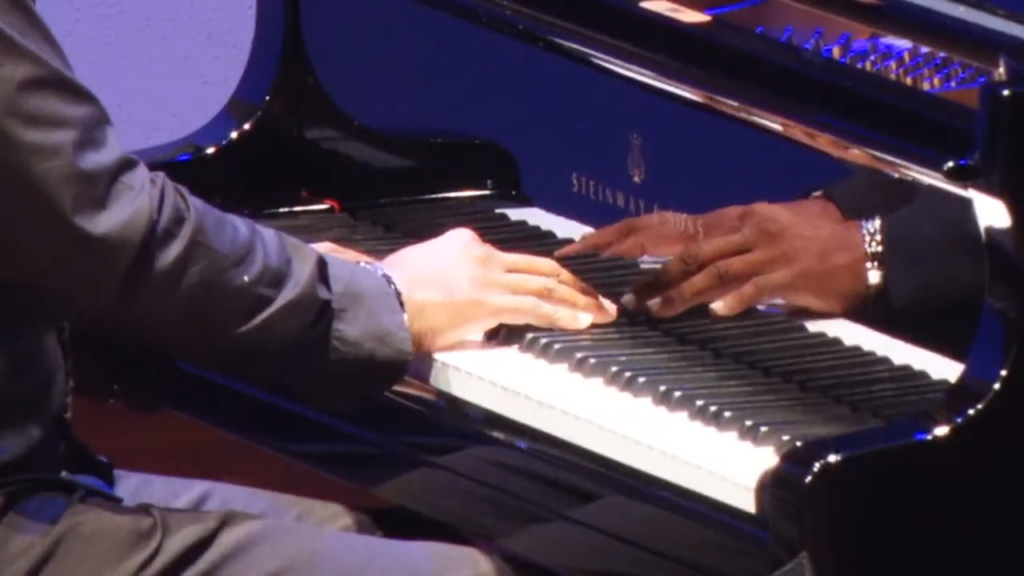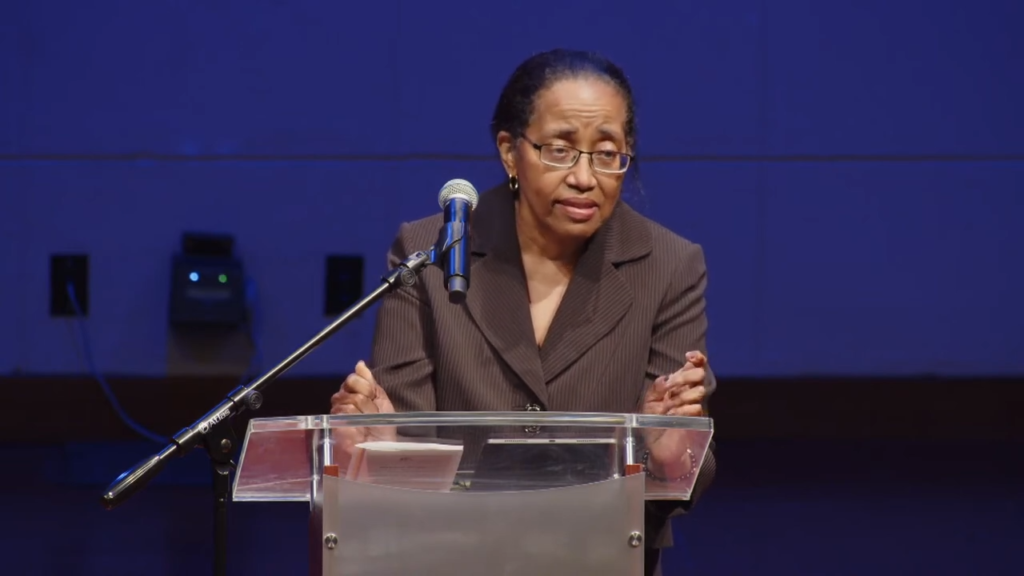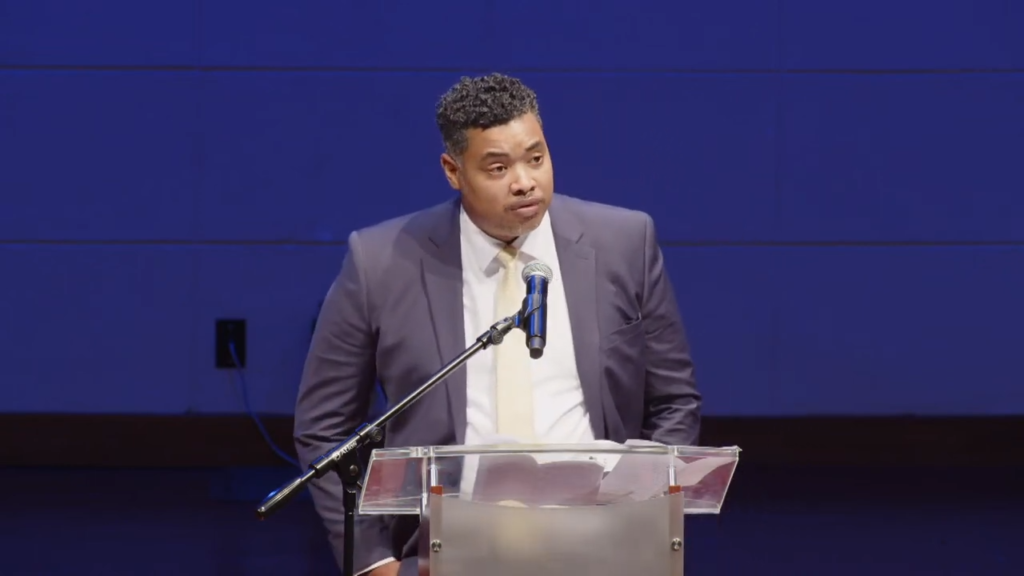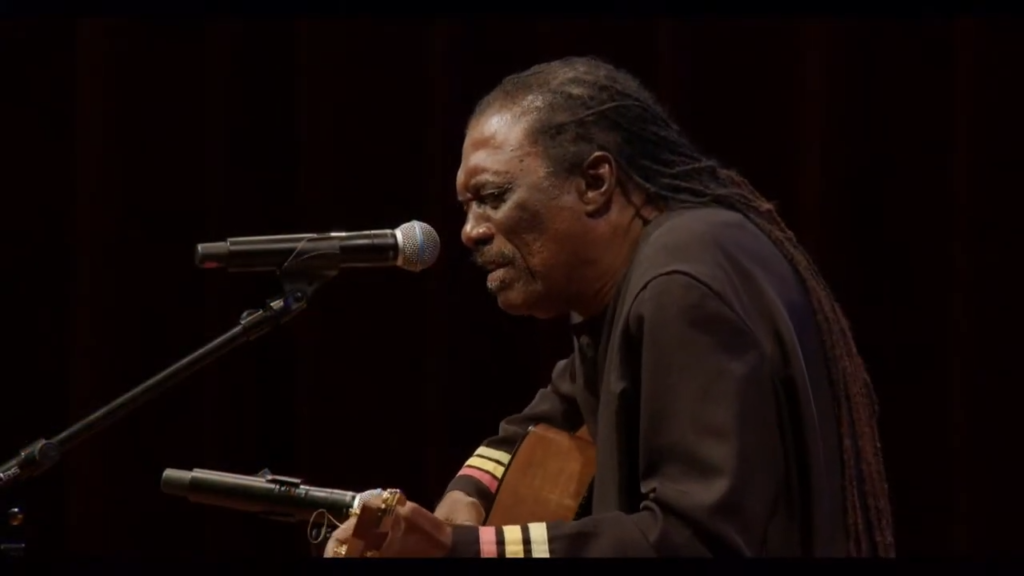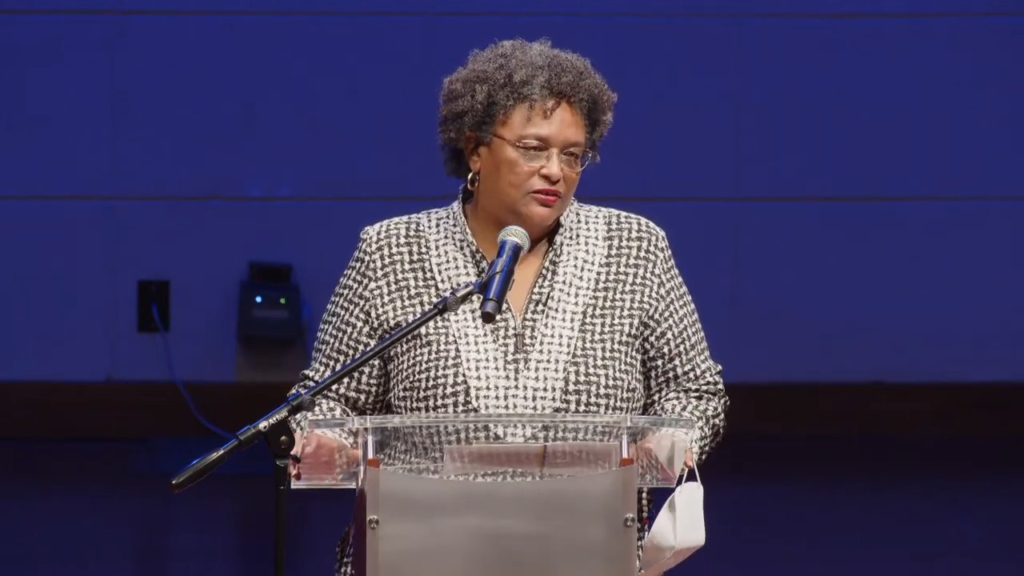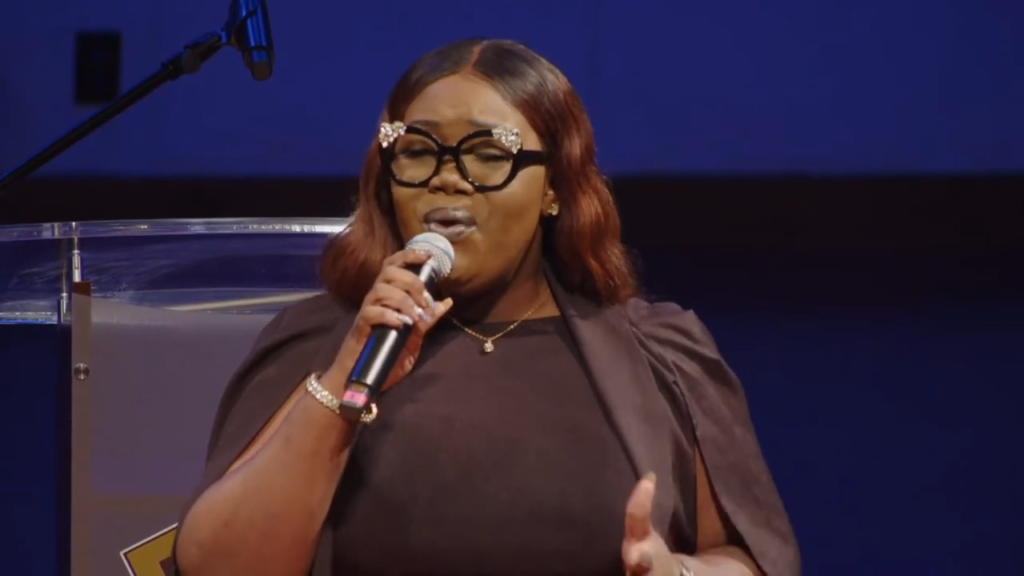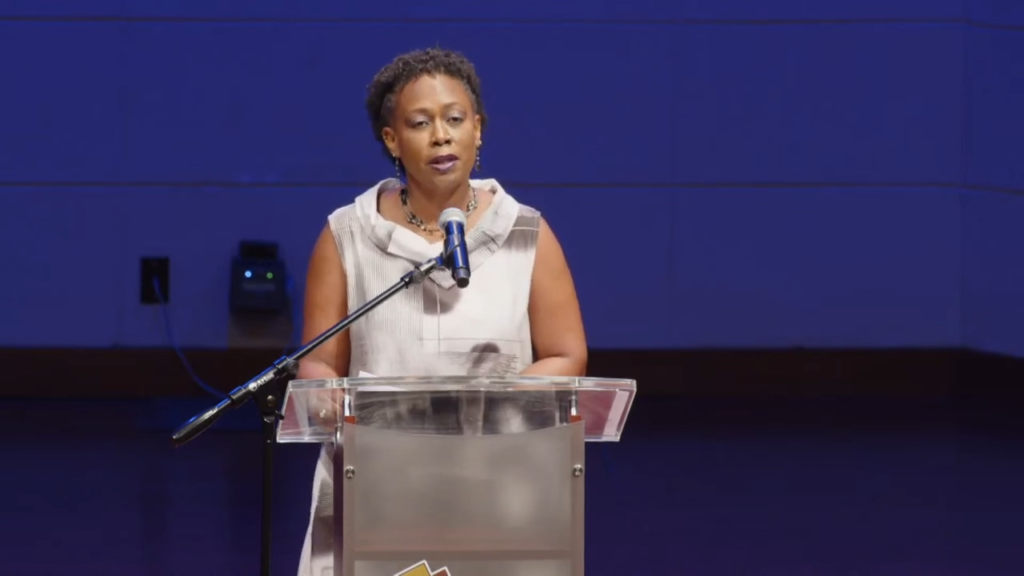Transcript of an Address given by the Honourable Mia Amor Mottley, Q.C., M.P., at the Memorial Service for the Honourable George Lamming, OCC, CHB which was held under the theme, “Tribute to the Man and His Words”.
July 1, 2022 at the Frank Collymore Hall, Church Village, St. Michael, Barbados.
Madam President. Members of Cabinet. Members of the Lamming family, in particular Natasha and George’s grandchildren distinguished Barbadians and Caribbean people all.
This is an amazing country. Not perfect, but amazing. I want to start differently by thanking those of you the Lamming family, the Cabinet Office, and the National Cultural Foundation for preparing for us this morning, a ceremony whose dignity and graciousness is perhaps only outperformed and outmatched by George’s words. The dignity and grace and beauty of his words.
And I do so because death is never easy. But for us to be able to say farewell in a manner as dignified as we do this morning is a tribute to us all and to the nation to which we belong.
I said we were amazing, but not perfect. And not perfect because in a very real sense, much of what we gather to do daily reflects the battle of George’s life. How do we emancipate ourselves from mental slavery? How do we remove from our presence, the plantation of the mind that has the power to outlive the plantation that was physically represented across every parish of our nation.
And I say so conscious that less than one year ago as a nation, we determined that we should be responsible for our own destiny in all that matters and means. And that, in a very real sense, is the confidence that we express as a people. But that confidence hasn’t just come through serendipity. It has come through the toiling and efforts of people like George, of those from the political sphere, of those from the artistic sphere, of those ordinary hawkers who line the street behind us in Roebuck Street for centuries, of those who laboured for a better life, for as many of our people as possible.
And I say so because our generation takes too much for granted; even those of us who, like myself, are children of independence. I ask us this morning to reflect on three things. And ironically, Natasha, you touch the first: to reflect on the courage of George; not only the courage to determine what his life’s work would be as a young man, but the courage to express himself in a way that others did not find possible or could not find the voice so to do; that he should have done it in that most expressive way, to give voice to what the average Barbadian felt across every village, across every nook and cranny, but to do it when he did it – less than 20 years after the Great Revolution of 1937 reflects a courage that we should never, never take for granted.
“In the Castle of My Skin” said so much for each and every Barbadian and Caribbean person. And long before Lloyd Best and others spoke of the plantation economy, George Lamming put the issue frontally for the Caribbean to address. Perhaps in his own way, he was fighting the battles through literature that Eric Williams fought through the expression of research and history.
The second thing is his compassion; his care. Care for those who could not be seen. Care for those who could not be heard. And many of you may hear me speak all the time about seeing people, hearing people and feeling people. I claim no original authorship of these words or concepts, but I simply find a desire to join the chorus of compassion that has been so ably shaped by George and others of this Caribbean civilization.
For too many centuries, our people were not seen, our people were not heard, and our people were not felt. And whether it is within the confines of our own nation or the expanse of our region, or the possibilities required of us, of the world in which we live, that commitment to compassion must ever be present every day and every night, because it is in the least of us, those who we see, those who we hear, and those who we feel at all levels that we will reflect better the perfection of this society.
And the third thing relates to commitment. No one ever had to doubt George’s commitment for his commitment remained ever present and unapologetically so. I learned that as a young Minister of Culture when I first met him. And I understood that even when I invited him to speak on behalf of the government or for the people, I should say, with respect to July 26, that date of our revolution, which too many refused to acknowledge and simply wanted to reflect on it as an expression of unruliness by the people of this nation.
George knew better and taught us better. And that today we have the Monument of Golden Square and the Republic of Barbados is due in no small measure to the life, work and times of men like George Lamming and others who I could reflect on.
This generation must not take for granted that which we have inherited.
Yesterday, I had cause to speak about the relay of Caribbean development. This is a relay race, and George has done well by running it. We shall forever remember his booming, distinctive voice. His unmistakable head of unruly hair. And I say so as one who shares that passion. Only two have completed the platinum or grey, which Johan spoke. And of course, his calm demeanor always reflected an indelible image of contemplative resolve.
I’m happy, young boys and girls, that I had the opportunity as Minister of Education to choose the site upon which the school that carries his name now finds itself. And there can be no greater reflection of our pride, than for you to wear always the name of your school with honor and to recognize that for you, you have now come to be associated with a giant and a national icon.
I pray that George’s spirit will imbue in us as a people that same sense of courage, compassion and commitment to which I referred. And I recall, as I said, on the day on which he passed, that this quintessential Barbadian, this quintessential Bajan, has done so much to allow us to be.
And then this year, last year, those expressions to which I referred both the Republic and the tangible expression of gratitude at Golden Square, I lay also at the feet of George Lamming. That lecture, which I asked him to give, was, in fact, at Golden Square at the time.
My friends, this country must come to honour appropriately our giants. And I refer to George, I refer to Kamau, I refer to Tom Clarke. I can go on and refer to others living like Ester, but we must come to appreciate that our determination to salute them is not about big man or big woman, but it is about sustaining, sustaining the worthiness and honour of their message.
I pray that we come together as a nation to do so as gracefully and as graciously as befits the man.
May his spirit imbue in us that sense of courage, commitment and compassion, always.
Thank you.
